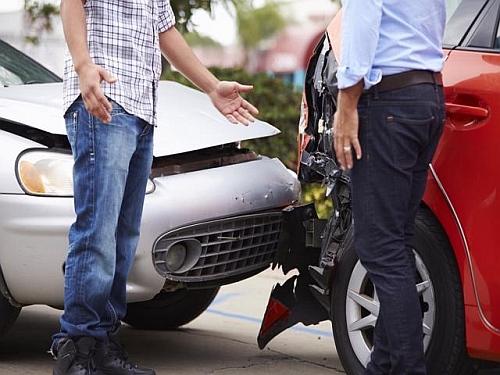If you’ve been involved in a crash in Monroe, North Carolina, understanding the legal steps involved in filing a car accident claim for damages is crucial. This blog provides a comprehensive guide to navigating the process, focusing on the relevant legal aspects specific to our state, and how a Monroe car accident attorney can help.
Immediate Actions after the Accident
Exchange contact and insurance details with everyone involved, including any witnesses who saw the crash unfold. Capture the scene with your phone camera, photographing the damage to all vehicles, the surrounding area, and any visible injuries sustained.
Documenting the accident officially is crucial. File a police report, even for seemingly minor fender benders. This official record protects your interests and provides vital evidence that supports your claim in the days and weeks ahead.
Finally, prioritize your health. Seek medical attention promptly, even if your injuries appear minor at the time. The adrenaline rush from the accident can mask underlying issues, so getting checked by a professional is essential.
Filing Your Car Accident Claim
The process of filing a car accident claim in Monroe, North Carolina, can be complex and often involves several steps beyond initially contacting your insurance company. Here’s a closer look at what you can expect:
1. Gathering Evidence:
- Police Report: Obtain a copy of the official police report filed after the accident. This document establishes the basic facts of the incident, including location, date, time, parties involved, and any observed property damage or injuries.
- Medical Records: Gather all records pertaining to your medical treatment, including doctor’s visits, diagnostic tests, prescriptions, and hospital bills. These documents serve as crucial evidence of your injuries and incurred medical expenses.
- Witness Statements: If any witnesses were present at the accident, obtain their written statements or contact information. Their testimony can corroborate your version of events and solidify your claim.
- Photographs and Videos: Document the damage to your vehicle and any visible injuries you sustained with photographs or videos. Take pictures from various angles to showcase the extent of the damage.
- Property Damage Estimates: Obtain repair estimates for your vehicle from reputable repair shops. This documentation helps solidify your claim for property damage compensation.

2. Determining Fault:
- Insurance Company Investigations: Both your and the at-fault party’s insurance companies will conduct independent investigations to assess the accident and determine fault. Be prepared to answer questions and provide relevant documentation during their inquiry.
- Accident Reconstruction Experts: In complex cases, insurance companies may hire accident reconstruction experts to analyze the scene and reconstruct the events leading to the accident. Their findings can play a significant role in establishing fault.
- Consulting an Attorney: When fault is unclear or disputed, seeking legal counsel can be beneficial. An experienced car accident attorney at 1Charlotte can analyze the evidence, investigate further, and build a strong case to establish fault and maximize your compensation.
3. Negotiating with Insurance Companies:
- Initial Settlement Offers: Both insurance companies involved will likely offer initial settlement amounts. Consider these offers carefully and understand that they may not represent the full value of your claim.
- Counteroffers and Negotiations: Negotiate with the insurance companies, providing evidence and justification for a higher settlement amount. An attorney can assist with negotiations and ensure you’re offered a fair settlement that covers your losses.
- Mediation or Arbitration: In some cases, insurance companies may suggest mediation or arbitration to resolve the claim outside of court. These options can offer faster resolution but may also involve compromises. Again, consulting with an attorney can help you determine whether these options are suitable for your case.
4. Filing a Lawsuit:
- Time Limits: Remember, North Carolina has a three-year statute of limitations for filing personal injury lawsuits. This means you must file your lawsuit within three years of the accident date.
- Formal Complaint: If negotiations fail and you wish to pursue full compensation, you can file a formal complaint with the court. This document outlines the details of your claim, the injuries you sustained, and the damages you seek.
- Litigation Process: If your case proceeds to litigation, be prepared for the discovery process, depositions, and potentially a trial. An experienced attorney will guide you through each stage of the process and represent your interests in court.
Legal Considerations in North Carolina
North Carolina follows a “comparative fault” system, meaning each party’s negligence is assigned a percentage. Your compensation may be reduced based on your percentage of fault.
You may be able to recover damages for medical expenses, property damage, lost wages, pain and suffering, and emotional distress. An attorney can help you understand the specific damages you may be entitled to.
Contact a Monroe, NC Car Crash Attorney ASAP!
The aftermath of an accident can be stressful, but these initial steps can help ensure your safety and lay the groundwork for a smooth recovery and potential claims.
Before filing a car accident claim, don’t hesitate to reach out to a Monroe, North Carolina auto crash lawyer for assistance by contacting 704-706-2689.




